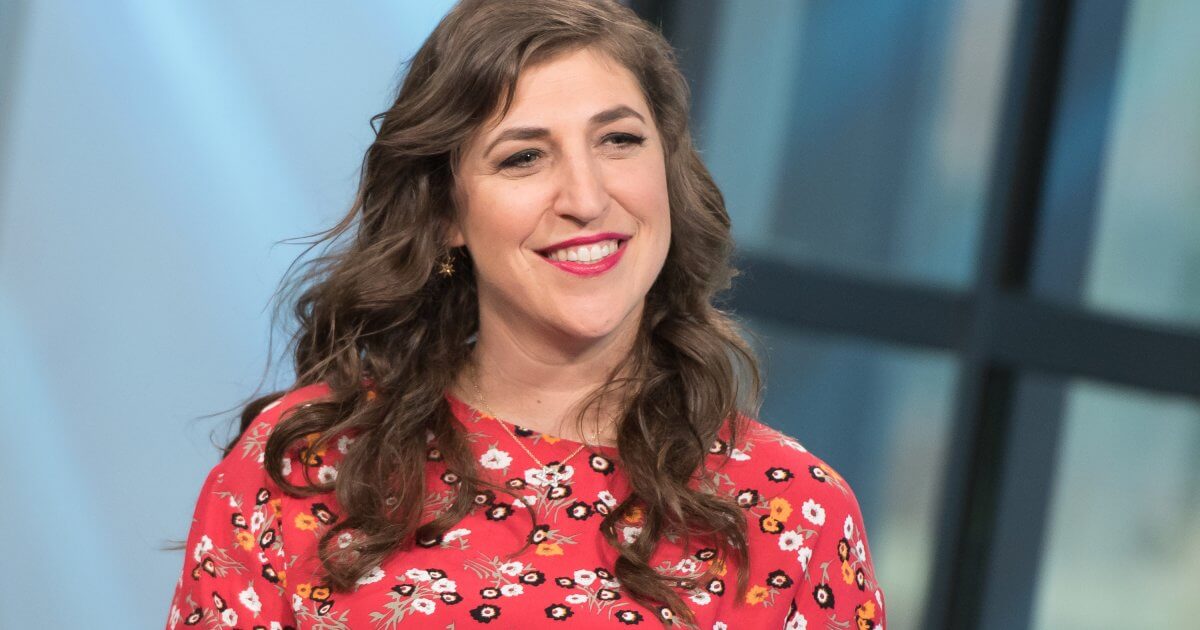Filling Some Big Shoes
- Actress and neuroscientist Mayim Bialik, 45, has been asked to step in as guest host on ‘Jeopardy!’ after longtime host Alex Trebek passed away from pancreatic cancer in November.
- The wife and mother has been affected by cancer in her own family life, and remembers her paternal grandmother having breast cancer but says, “She never talked about it.”
- It is worth considering genetic testing for breast cancer, especially if there is a known family history, and be sure to get regular mammograms.
Katie Couric, Aaron Rodgers, Bill Whitaker, and Mayim Bialik will each take their turn as guest hosts of Jeopardy!
As a part of each guest host's appearance, a donation will be made to a charity of their choice. Jeopardy! (@Jeopardy) January 13, 2021
Affected by Breast Cancer
Luckily we are living in a time where geek is definitely chic. And there’s nothing more chic than being a good role model and speaking up about cancer prevention. Bialik is one of the millions affected by breast cancer in her family. Her father’s mother had breast cancer in the 50s and had a radical mastectomy (removal of the breast, chest muscles and all lymph nodes under the arm), which is rarely performed today. “She never talked about it,” the actress shared on a Facebook video chronicling her first mammogram experience. “She didn’t come from a generation where they spoke about it.” Fast forward decades later, a very different time, where we are making progress every day to make it more comfortable for women and men to talk about. Check out the star’s video diary below!
When To Start Getting Mammograms
Doctors get frustrated when women come in with large lumps in their breast that should have been checked out much much earlier. “The screening guidelines is that we start at the age of 40, and we do screening mammography annually,” Dr. Senayet Agonafer told SurvivorNet in a previous interview. “For patients who are higher risk, we also recommend screening with breast MRI.” For patients with dense breasts (more breast tissue on a mammogram than there is fat), “we actually also recommend screening with ultrasound. The reason being is that mammography is about 15% to 20% less sensitive in patients with dense breasts. These are the deaths that we want to prevent. Cancers that can be diagnosed very easily on mammogram.”
Learn Your Risk and Listen to the Guidelines: An Important Message About Breast Cancer Awareness
Genetic Testing For Breast Cancer
In addition to getting regular mammograms, women should consider genetic testing for breast cancer, especially if they have already been diagnosed or have a known family history present. Dr. Elizabeth Comen of the Memorial Sloan Kettering Cancer Center told SurvivorNet in a previous interview that “it’s really important that a doctor review a patient’s family history and all the factors that go into whether genetic testing may be appropriate.” If you have already been diagnosed with breast cancer, doctors may look to the tumor for answers. “We look at all the genes that help make up the blueprint of that tumor and try to figure out, what are the mutations that evolved in that cancer, specifically to allow it to grow? And the reason why that’s important is it might make certain clinical trials appropriate for a patient.”
Genetic Testing For Breast Cancer
Learn more about SurvivorNet's rigorous medical review process.


